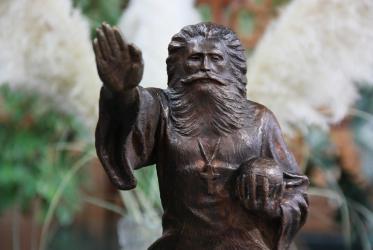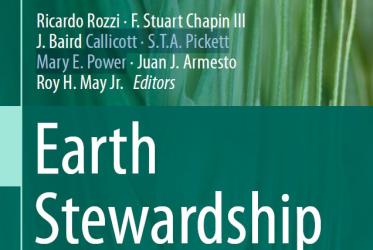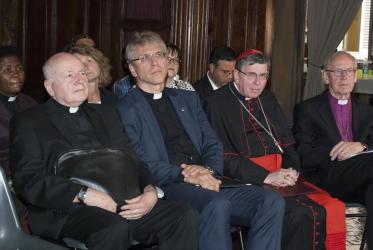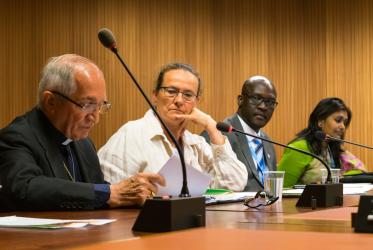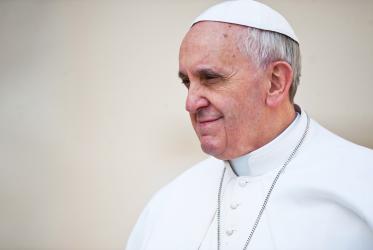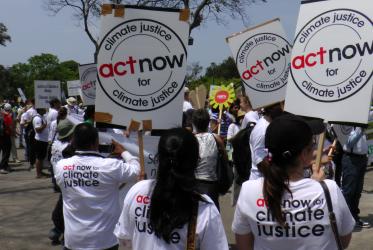Displaying 601 - 620 of 824
Churches to pray for care of creation
20 August 2015
Церкви, призванные молиться о защите создания
20 August 2015
Inspirations for Earth Stewardship
12 August 2015
Pilgrimage for climate justice continues in Norway
04 August 2015
Reclaiming our humanity
23 June 2015
Churches' “prophetic voice” will be busy in 2015
18 June 2015



